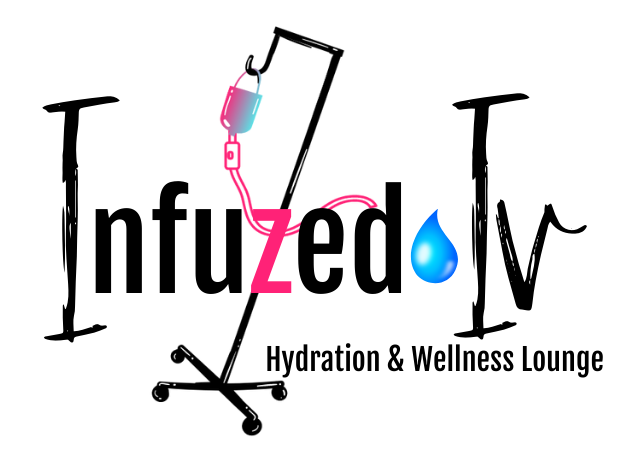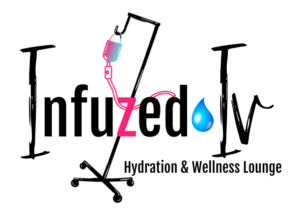
Epitalon/ GHK-CU
Epitalon: The Fountain of Youth Peptide
Our bodies create telomerase to lengthen the molecular “caps” protecting our DNA as we age. Thanks to innovation in peptide therapy and precision synergy of ingredients, Epitalon increases telomerase synthesis, delaying the onset of aging and age-related diseases. This is a derivative of a polypeptide naturally released from your pineal gland, or “third eye” that plays a role in sleep, cardiovascular health, hormone balance, and mood stabilization.
Epitalon naturally stimulates your hypothalamus and anterior pituitary, leading to more downstream benefits including reducing lipid oxidation and ROS, normalizing T cell function, normaling cholesterol, uric acid, and prolactin levels, restoring pancreatic hormone function, and restoring melatonin levels.
Benefits of Epitalon
While results of using epitalon may vary from one patient to another, studies have shown health benefits including:
● Helps promote better and deeper sleep quality
● Restores circadian rhythm and sleep/wake cycle
● Improves melatonin secretion
● Modulates blood levels of gonadotropins
● Reduces risk of age-related neurodegenerative diseases, such as Alzheimer’s, dementia, heart disease, etc.
● Antioxidant function destroys free radicals and inhibits lipid oxidation, protecting against oxidative stress
● Reduces tumor development risk, thus preventing cancer growth
● Improves immune function
● Accelerated wound healing
● Improves response to emotional stress
● Boosts protein synthesis to aid muscle growth and strength
GHK-CU FOR HAIR AND SKIN
GHK-Cu is a naturally occurring copper complex first identified in human plasma but recently found in multiple locations, such as saliva and urine.
GHK-Cu has a variety of roles in the human body, including promoting activation of wound healing, attracting immune cells, having anti-oxidant and anti-inflammatory effects, stimulating collagen and glycosaminoglycan synthesis in skin fibroblasts, and promoting blood vessel growth.
Evidence has shown that it acts as a feedback signal generated after tissue injury. It seems to act as a potent protector of tissue, and it is an anti-inflammatory agent that controls the oxidative damage that occurs after tissue injury. Further, it then plays a big role in signaling tissue remodeling, removing damaged/scarred tissue and generating new, healthy tissue.
These positive effects decline with age because the concentration of GHK-Cu in the body decreases.
Benefits of GHK-Cu
Here are some key benefits of copper peptide GHK-Cu.
- Tightens loose skin and reverses thinning of aged skin
- Repairs protective skin barrier proteins
- Improves skin firmness, elasticity, and clarity
- Reduces fine lines and depth of wrinkles and improves the structure of aged skin
- Smooths rough skin
- Reduces photodamage, mottled hyperpigmentation, skin spots, and lesions
- Improves overall skin appearance
- Stimulates wound healing
- Protects skin cells from UV radiation
- Reduces inflammation and free radical damage
- Increases hair growth and thickness; enlarges hair follicle size
GHK-Cu Research
Since GHK-Cu plays an important role in skin biology, it is widely used in cosmetics as a reparative and anti-aging ingredient.
GHK stimulates the synthesis and breakdown of collagen and glycosaminoglycans and modulates the activity of both metalloproteinases and their inhibitors. It stimulates collagen, dermatan sulfate, chondroitin sulfate, and the small proteoglycan decorin. It also restores replicative vitality to fibroblasts after radiation therapy. The molecule attracts immune and endothelial cells to the site of an injury. It accelerates wound healing of the skin, hair follicles, gastrointestinal tract, and boney tissue. In cosmetic products, it has been found to tighten loose skin and improve elasticity, skin density, and firmness, reduce fine lines and wrinkles, reduce photodamage and hyperpigmentation, and increase keratinocyte proliferation.
GHK-Cu FACIAL STUDIES
Copper peptide GHK-Cu is widely used in anti-aging cosmetics (INCI name: Copper tripeptide-1). Several controlled facial studies confirmed the anti-aging, firming and anti-wrinkle activity of copper peptide GHK-Cu. Abdulghani et al. established that facial cream containing GHK-Cu increased collagen in photoaged skin of 20 female volunteers, performing better than vitamin C and retinoic acid. Leyden et al. conducted 12 weeks facial study of GHK-Cu containing face and eye cream, reporting significant improvement of skin laxity, clarity, and appearance, reduced fine lines and the depths of wrinkles, and increased skin density and thickness compared to placebo. GHK-Cu eye cream performed better than vitamin K cream. Finkley et al. conducted a 12-week facial study on 67 women and reported that GHK-Cu cream applied twice daily improved aged skin appearance, increased thickness, reduced wrinkles and strongly stimulated dermal keratinocyte proliferation as determined by histological analysis of biopsies. The same study found copper peptide GHK-Cu to be non-toxic and non-irritating.
HAIR GROWTH BENEFITS OF GHK-CU
Copper peptide GHK-Cu and its analogs were found to strongly stimulate hair growth. The efficiency of the synthetic analog of GHK-Cu was similar to that of 5% minoxidil.
Conclusion
GHK-Cu can promote activation of wound recovery, appeal of immune cells, antioxidant, and anti-inflammatory consequences, stimulation of collagen and glycosaminoglycan synthesis in pores and skin fibroblasts and merchandising of blood vessels increase.
GHK is a safe, extensively studied compound that has a wealth of positive and health-promoting effects in many tissues and systems. It has been widely used in anti-aging and cosmetic products in humans for decades without any adverse effects and can be easily incorporated in creams, liposomes, foams or subcutaneous injections.
GHK-CU FOR HAIR AND SKIN
GHK-Cu is a naturally occurring copper complex first identified in human plasma but recently found in multiple locations, such as saliva and urine.
GHK-Cu has a variety of roles in the human body, including promoting activation of wound healing, attracting immune cells, having anti-oxidant and anti-inflammatory effects, stimulating collagen and glycosaminoglycan synthesis in skin fibroblasts, and promoting blood vessel growth.
Evidence has shown that it acts as a feedback signal generated after tissue injury. It seems to act as a potent protector of tissue, and it is an anti-inflammatory agent that controls the oxidative damage that occurs after tissue injury. Further, it then plays a big role in signaling tissue remodeling, removing damaged/scarred tissue and generating new, healthy tissue.
These positive effects decline with age because the concentration of GHK-Cu in the body decreases.
Benefits of GHK-Cu
Here are some key benefits of copper peptide GHK-Cu.
- Tightens loose skin and reverses thinning of aged skin
- Repairs protective skin barrier proteins
- Improves skin firmness, elasticity, and clarity
- Reduces fine lines and depth of wrinkles and improves the structure of aged skin
- Smooths rough skin
- Reduces photodamage, mottled hyperpigmentation, skin spots, and lesions
- Improves overall skin appearance
- Stimulates wound healing
- Protects skin cells from UV radiation
- Reduces inflammation and free radical damage
- Increases hair growth and thickness; enlarges hair follicle size
GHK-Cu Research
Since GHK-Cu plays an important role in skin biology, it is widely used in cosmetics as a reparative and anti-aging ingredient.
GHK stimulates the synthesis and breakdown of collagen and glycosaminoglycans and modulates the activity of both metalloproteinases and their inhibitors. It stimulates collagen, dermatan sulfate, chondroitin sulfate, and the small proteoglycan decorin. It also restores replicative vitality to fibroblasts after radiation therapy. The molecule attracts immune and endothelial cells to the site of an injury. It accelerates wound healing of the skin, hair follicles, gastrointestinal tract, and boney tissue. In cosmetic products, it has been found to tighten loose skin and improve elasticity, skin density, and firmness, reduce fine lines and wrinkles, reduce photodamage and hyperpigmentation, and increase keratinocyte proliferation.
GHK-Cu FACIAL STUDIES
Copper peptide GHK-Cu is widely used in anti-aging cosmetics (INCI name: Copper tripeptide-1). Several controlled facial studies confirmed the anti-aging, firming and anti-wrinkle activity of copper peptide GHK-Cu. Abdulghani et al. established that facial cream containing GHK-Cu increased collagen in photoaged skin of 20 female volunteers, performing better than vitamin C and retinoic acid. Leyden et al. conducted 12 weeks facial study of GHK-Cu containing face and eye cream, reporting significant improvement of skin laxity, clarity, and appearance, reduced fine lines and the depths of wrinkles, and increased skin density and thickness compared to placebo. GHK-Cu eye cream performed better than vitamin K cream. Finkley et al. conducted a 12-week facial study on 67 women and reported that GHK-Cu cream applied twice daily improved aged skin appearance, increased thickness, reduced wrinkles and strongly stimulated dermal keratinocyte proliferation as determined by histological analysis of biopsies. The same study found copper peptide GHK-Cu to be non-toxic and non-irritating.
HAIR GROWTH BENEFITS OF GHK-CU
Copper peptide GHK-Cu and its analogs were found to strongly stimulate hair growth. The efficiency of the synthetic analog of GHK-Cu was similar to that of 5% minoxidil.
Conclusion
GHK-Cu can promote activation of wound recovery, appeal of immune cells, antioxidant, and anti-inflammatory consequences, stimulation of collagen and glycosaminoglycan synthesis in pores and skin fibroblasts and merchandising of blood vessels increase.
GHK is a safe, extensively studied compound that has a wealth of positive and health-promoting effects in many tissues and systems. It has been widely used in anti-aging and cosmetic products in humans for decades without any adverse effects and can be easily incorporated in creams, liposomes, foams or subcutaneous injections.





